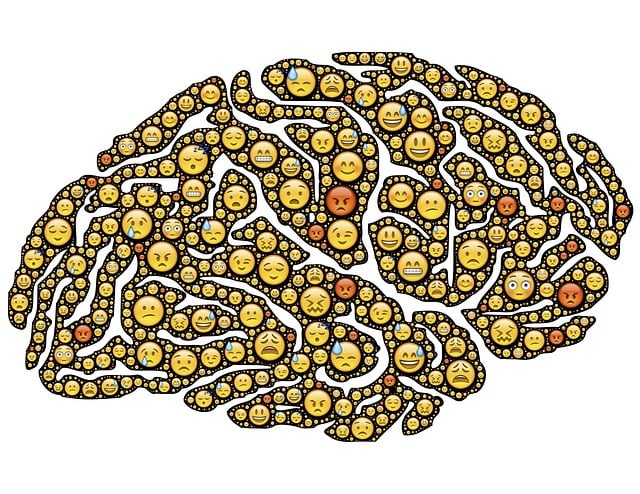Cultural competency is vital in healthcare, especially in diverse cities like Longmont with a growing French-speaking population. Longmont French Speaking Therapy offers an innovative approach, combining Compassion Cultivation Practices and Conflict Resolution Techniques to bridge cultural and linguistic gaps in mental health care. Their specialized training equips healthcare providers with skills in empathy building, effective communication, and understanding cultural nuances, improving patient outcomes and strengthening relationships with diverse communities. This model demonstrates the importance of tailored cultural competency programs, led by organizations like Longmont French Speaking Therapy, for delivering quality healthcare in a diverse society.
Cultural competency training is an essential aspect of modern healthcare, addressing the diverse needs of a varied patient population. This article explores this critical topic, highlighting the growing demand for diversified training among healthcare providers. We present a specialized approach from Longmont French Speaking Therapy, showcasing how cultural sensitivity can be cultivated. Furthermore, effective training strategies are discussed to enhance cultural competency, ensuring healthcare professionals can navigate diverse cultural contexts with confidence and empathy.
- Understanding Cultural Competency in Healthcare: The Need for Diversified Training
- Longmont French Speaking Therapy: A Specialized Approach to Cultural Sensitivity
- Implementing Effective Training Strategies for Healthcare Providers on Cultural Competency
Understanding Cultural Competency in Healthcare: The Need for Diversified Training

Cultural competency in healthcare is a vital aspect that goes beyond treating symptoms. It involves understanding and respecting diverse cultural backgrounds, beliefs, and values to provide quality care tailored to each patient’s unique needs. In today’s diverse communities, healthcare providers must be prepared to interact with patients from various ethnic, racial, and linguistic groups, including those who speak languages like French in areas like Longmont.
Diversified training is crucial to ensuring healthcare professionals can effectively communicate, empathize, and build trust across cultural divides. This includes learning about different communication styles, non-verbal cues, and the impact of cultural norms on health behaviors. By integrating Mind Over Matter Principles, Trauma Support Services, and Compassion Cultivation Practices into training programs, healthcare providers can enhance their ability to offer inclusive care. Such an approach not only improves patient outcomes but also fosters a more harmonious relationship between healthcare providers and the diverse communities they serve.
Longmont French Speaking Therapy: A Specialized Approach to Cultural Sensitivity

In many diverse communities, such as Longmont—a vibrant hub with a growing French-speaking population—there is a pressing need for healthcare providers to possess cultural sensitivity and language skills. To address this gap, specialized initiatives like Longmont French Speaking Therapy have emerged. This innovative approach goes beyond basic language translation, focusing on deep cultural understanding to bridge the gap between healthcare services and patients from diverse backgrounds. By integrating Compassion Cultivation Practices and Conflict Resolution Techniques, therapists foster an environment of trust and respect, enhancing the therapeutic process.
The therapy model recognizes that mental health issues often intersect with cultural and linguistic barriers, requiring tailored interventions. It encourages providers to delve into the unique aspects of each patient’s culture, including their values, beliefs, and communication styles, ensuring that care remains sensitive and effective. This specialized training is not just a testament to the changing demographics in healthcare settings but also a proactive step towards improving Mental Health Policy Analysis and Advocacy, ultimately enriching the quality of care provided.
Implementing Effective Training Strategies for Healthcare Providers on Cultural Competency

Implementing effective training strategies for healthcare providers on cultural competency is paramount to delivering quality care in a diverse society. Organizations like Longmont French Speaking Therapy can lead the way by offering specialized workshops that cater to specific cultural needs, such as those for French-speaking communities. These sessions should go beyond surface-level awareness and focus on practical skills, including empathy building strategies, effective communication techniques, and understanding of cultural nuances in healthcare decision-making processes.
Incorporating interactive activities, case studies, and role-playing exercises can enhance learning outcomes. Additionally, inviting guest speakers from diverse backgrounds to share their experiences adds depth and context to the training. Stress management workshops and mood management techniques should also be integrated, as cultural competency often intersects with addressing patients’ psychological well-being. Ultimately, continuous evaluation and feedback mechanisms ensure that these training programs remain relevant and effective in fostering a culturally sensitive healthcare environment.
Cultural competency training is an essential aspect of modern healthcare, as evidenced by innovative programs like Longmont French Speaking Therapy. This specialized approach highlights the need for diverse and tailored educational strategies. By implementing effective training methods, healthcare providers can enhance their cultural sensitivity, improve patient outcomes, and foster inclusive care environments. These initiatives ensure that every patient receives respectful, competent, and culturally responsive services, ultimately benefiting communities across the spectrum of language and culture.














